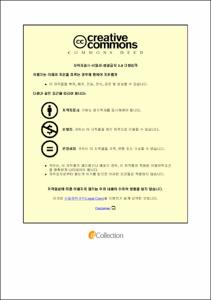청소년소설에 나타난 인물의 주체 형성과 아버지
- Abstract
- Subject Formation of the Characters and Father in Adolescent Novels
Kyungran Lee
Department of Korean Language and Literature, The Graduate School,
Pukyong National University
Abstract
Based on the introspection that prior discourse on adolescent literature focused mainly on the genre itself, and that as a result, there is a lack of analysis on individual works of adolescent literature, this dissertation concentrates on analyzing the specific works of adolescent literature. This dissertation adopted Lacanian psychoanalytic theories in analyzing and exploring such literary works, not only because Lacan’s emphasis of the subject and alienation/separation serves as useful tools in exploring growth stages of characters, but also because his “Name-of-the-father” concept makes it possible to interpret the acceptance of and resistance against the world that the characters demonstrate throughout the novels on multiple dimensions.
This dissertation deals with five adolescent novels :Wan-deuk Yi, Wizard Bakery, Hair of a Seventeen-Year-Old, I am my Father’s Relative and All Beautiful Children.
Wan-deuk Yi and Wizard Bakery are novels in whose storyline, the “Name-of-the-father” is absent. As each father in the novels fails to lead each main character to the “Symbolic Stage”, the characters suffer linguistic confusions and occasionally reveal that their perception of the world is rather ambiguous, devoid of any particular conflict or desire. Characters in both novels evolve rather painfully to their Symbolic Stages by discovering father figures outside of their homes. On the other hand, Hair of a Seventeen-Year-Old and I am my Father’s Relative are works of literature in which the subjects realize the “lack in father”, and resist “Name-of-the-father”. However, while the characters of Hair of a Seventeen-Year-Old, even after they resist against the “Name-of-the-father” and its disciplinary powers that materialize in the form of violence committed by the “bad fathers”, maintain their fantasies of the “good fathers” and at the end of the day, return to the world of fathers, the characters in I am my Father’s Relative instead acquire separation from the patriarchal order by passing through the fantasy of an “ideal family” made by an “ideal father.” In All Beautiful Children there appears a main character who believes himself to be trapped in a distorted relations of the symbolic stage, and dreams of finding the perfect self. At the same time, he idolizes Mr. Whyso as a father figure and as an object of self-identification, and adjusts his desires to those of Mr. Whyso. However, the main character ultimately discovers his true desires that surpass those of Mr. Whyso in “the real” world outside of the island, or his Symbolic Stage.
According to Lacan’s theory, the true completion of the subject means liberation from the desires of the Other, which, in subject of this dissertation, is the father. Such process of subjectivation neither is unilateral nor is an one-time event that can only be achieved and completed in a single opportunity in one’s lifetime. Rather, there exists a drama comprised of a number of progressions and regressions, delays, retreats, conquests and accomplishments. Adolescent novels represent such dramas. I sincerely hope that this study contributes to in-depth understanding of adolescent novels, and to expand the potential of the genre while at the same time procuring the diverse possibilities of interpretation.
Key words: the adolescent novel, Name-of-the-father, subjectivation, Lacan, growth
- Issued Date
- 2017
- Awarded Date
- 2017. 8
- Type
- Dissertation
- Keyword
- 청소년소설 라캉 주체화 아버지의 이름 완득이 위저드 베이커리 열일곱 살의 털 나는 아버지의 친척 모두 아름다운 아이들.
- Publisher
- 부경대학교
- Affiliation
- 부경대학교 대학원
- Department
- 대학원 국어국문학과
- Advisor
- 송명희
- Table Of Contents
- 목 차
Abstract ⅱ
Ⅰ. 서론 1
1. 문제 제기와 연구의 목적 1
2. 연구사 검토 8
3. 연구의 방법과 범위 21
Ⅱ. 라캉의 주체 개념 29
1. 주체의 형성과 ‘소외’ 29
2. 대타자의 결핍과 ‘분리’ 37
3. ‘아버지의 이름’의 기능 43
Ⅲ. ‘아버지의 이름’으로 본 인물의 주체화과정 47
1. 이름을 부르는 의사(擬似) 아버지 -완득이 47
2. 금지하지 않는 모호한 아버지 -위저드 베이커리 71
3. 가정, 학교, 국가라는 폭력적인 아버지 -열일곱 살의 털 103
4. ‘내 아버지’라는 환상 -나는 아버지의 친척 133
5. ‘아버지의 이름’을 넘어서 -모두 아름다운 아이들 156
Ⅳ. 결론 185
참고문헌 196
- Degree
- Doctor
- Files in This Item:
-
-
Download
 청소년소설에 나타난 인물의 주체 형성과 아버지.pdf
기타 데이터 / 1.42 MB / Adobe PDF
청소년소설에 나타난 인물의 주체 형성과 아버지.pdf
기타 데이터 / 1.42 MB / Adobe PDF
-
Items in Repository are protected by copyright, with all rights reserved, unless otherwise indicated.